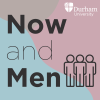What role do fathers play in violence prevention and building a non-violent future?
This new white paper by Professor Michael Flood explores fathers' roles in violence prevention. It was launched at the inaugural Fathering Summit on March 14 2024, in Sydney (Australia), hosted by the Fathering Project.
The paper notes that:
1. Positive father involvement is good for children, mothers, families, and fathers themselves
2. Positive father involvement and non-violence go together
Resources
There is a wealth of content on the Internet offering men and boys rigid, restrictive and harmful ideas about masculinity and gender relations – from the Manosphere, to pornography, to mainstream news and entertainment featuring narrow models of manhood. By contrast, there remains a relative lack of material seeking to engage in positive, empowering ways with men and boys in order to strengthen their participation in debates and action in relation to gender equality and feminism.
Advancing girls and women in male-dominated industries requires the leadership, participation, commitment, and allyship of men. Engendering Industries, in partnership with Equimundo, works to engage men and individuals who identify as male to be workplace gender equality champions.
The book Patriarchy in Practice had its origins in a conference at the School of African and Oriental Studies (SOAS), in London, in 2019, which had been organised by two of its co-editors, Dan Nightingale and Amir Massoumian.
This report informs Alberta’s next and exciting chapter of expanding work with men and boys to end violence and advance gender equality. It was written to support the Alberta Primary Prevention Framework Collaborative by providing clear and actionable strategies for Alberta’s anti-violence sector as well as the Government of Alberta.
We have organized the information into three evidence-informed sections.
The first section is the case for engaging men and boys along with foundational theories and approaches to help readers orient themselves in this work.
The Working with Men and Boys for Social Justice Assessment Tool is a new tool for assessing community programs for men and boys. It aims to provide leaders, designers and facilitators of programs or initiatives for men and boys the opportunity to review, reflect on and strengthen principles of gender and social justice. The Tool comprises key aspects that support positive social change in programs designed for men and boys.
I tweet regularly on issues of men, masculinities, gender, and violence, at https://twitter.com/MichaelGLFlood. On this page, I list many of my recent tweets. So if you don't use X/Twitter or follow me on Twitter, then you can find most of my recent tweets here. If X/Twitter ceases to exist or be functional, I may continue posting at Mastodon, at @MichaelGLFlood@mastodon.au.
Unpacking the Man Box is based on a survey of 1,000 young Australian men aged 18 to 30. The report builds on the findings of The Men’s Project’s 2018 report The Man Box.
The initial Man Box report found that young Australian men who believe in outdated masculine stereotypes were themselves at higher risk of using violence, online bullying and sexual harassment, engaging in risky drinking and reporting poorer levels of mental health.
Over the past decade, health programs have increasingly engaged men and boys in order to achieve gender equality and improve health outcomes. Gender inequality is a pervasive structural issue that negatively affects women, girls, men, and boys. Narratives of masculinity that justify men’s capacity for violence, control over women, and dominance in the economic and political spheres is influential in many local contexts around the world.







